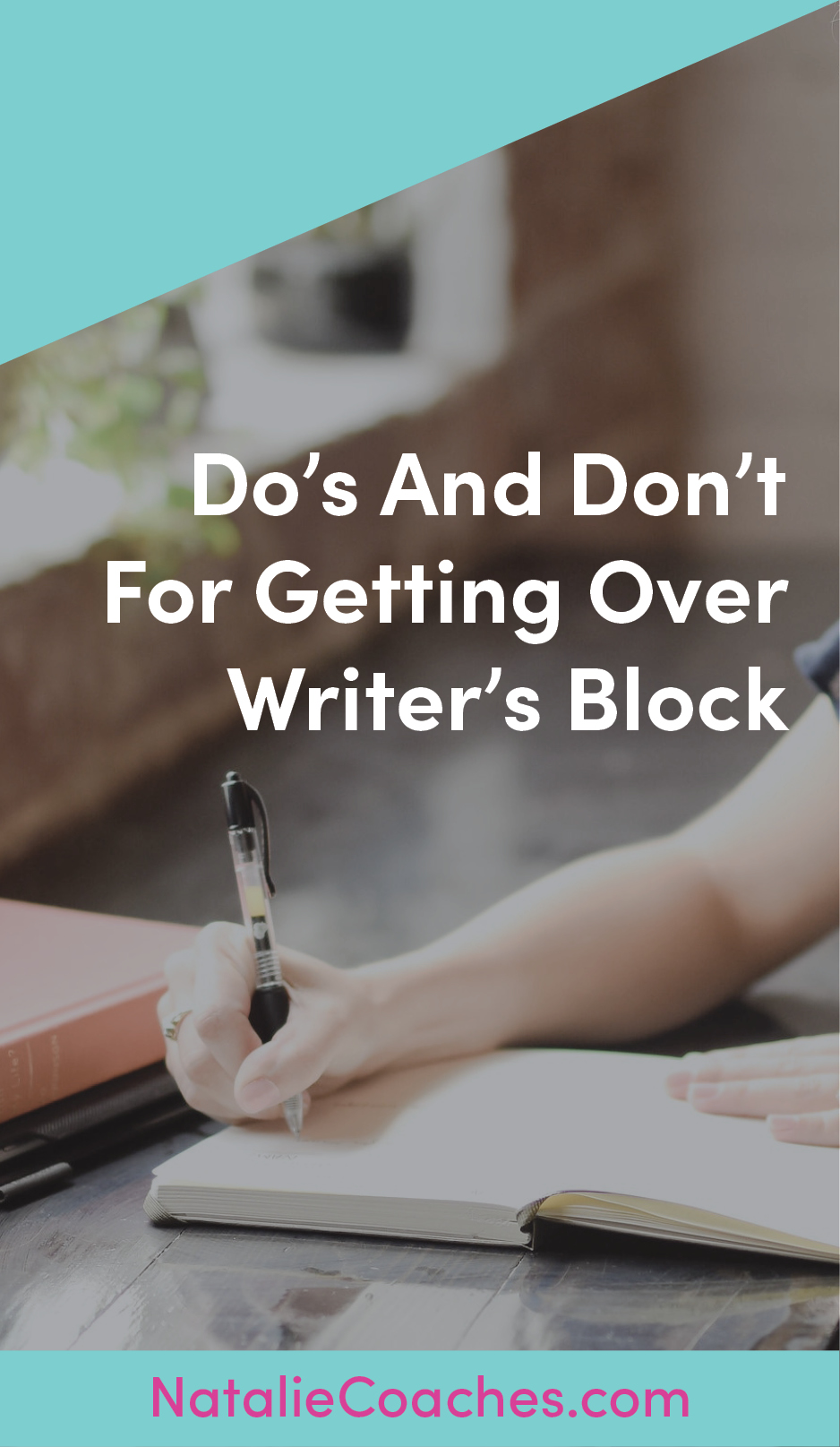Do's And Don't For Getting Over Writer's Block
There’s nothing like staring at a blank page on a computer screen to create a seemingly insurmountable mental block about what you’re going to write. Even the most experienced writers get stuck, and if you don’t have a few good strategies for getting over writer’s block it can create serious issues for your workflow. Here are some of my favorite Do’s and Don’ts for getting over writer’s block.
Do go old school with pen and paper
There’s something overwhelming about a computer screen when you can’t get your brain to work the way you need it to. I find that shutting down and going back to pen and paper for a brainstorming session often gets the ideas flowing again. I keep a legal pad in my desk for just such purposes, and when I’m stuck I just write/doodle/mind map, etc. until I have an idea of what I want to write about.
Do something else that’s creative
Step away from your desk, and create something completely unrelated to your writing. I love to paint, draw, and (when I’m experiencing significant brain drain) color. There is something about focusing on just creating something new that gets me back in the right mindset to write again. I have colleagues who play music, cook, garden, and do crafts to get to the place where they can write again. Getting your brain back into a creative space, without the pressure of writing something meaningful, can unlock your ideas for when you are ready to write again. Bonus points if you can practice mindfulness during your creative process.
Don’t write chronologically
One of the first directions I gave my writing students was to NOT start writing the first word of the first paragraph of the new essay/story/etc. It’s easy to get stuck trying to figure out how to open the piece, and it can lead to serious writer’s block. Instead, write whatever you already have worked out. If you already know your thesis, one of your key arguments, the compelling plot twist, etc. then write that FIRST. The beauty of no longer working on typewriters (sorry, hipsters), is you can digitally cut and paste to your heart’s content. And once you have some of the pieces developed, it becomes much easier to keep adding on until you have a complete work.
Don’t worry about perfection
Writing is fluid and meant to be worked over, revised, edited, etc. before it’s complete. I know many writers who get stuck trying to write the next great American novel/thinkpiece/viral blog post on their first draft. Trying to hit a home run on your very first at-bat creates stress by trying to live up to an unrealistic expectation; nothing shuts down creativity better than perfection-related stress. Instead focus on writing your best work at that point in time, knowing you are going to come back and revise it. You better believe I’ll be revisiting these posts and updating them! And if you’re not convinced, consider this: Tolstoy wrote 10 versions of Anna Karenina, over the span of 10 years, before he was finally satisfied with the result!
Do keep track of your ideas when you’re not writing
I have my most brilliant moments of insight in the bath, when I’m driving, and cooking dinner. As in, during the most inopportune times when I’m nowhere near a computer or pen and paper. I make use of voice notes on my phone, post-its, the notebooks I have stashed everywhere (I hoard notebooks), and various scraps of paper lying around if it’s an idea emergency. Whenever I’m stuck I can comb through these ideas to find something to write about, or something that supports the piece I’m currently working on.
Do try stream-of-consciousness writing
There are many methods for this type of writing (which I’ll elaborate on in another post), but at its core it’s just writing whatever comes to your mind at the moment. I used this exercise quite a bit for my students in both creative and composition writing classes, and it got them to think of new ideas, or current ideas in a new way. Sometimes there are brilliant insights hanging out in your subconscious, just waiting for the right method to be accessed.
When all else fails, simply step away from your work. Mental breaks are important, and sometimes all you need is to give your brain a rest. Eat a snack, watch TV, take a nap, go outside, etc. We live in a society that’s obsessed with working non-stop and barreling through obstacles, but often the most effective way to be more productive and creative is to rest.

